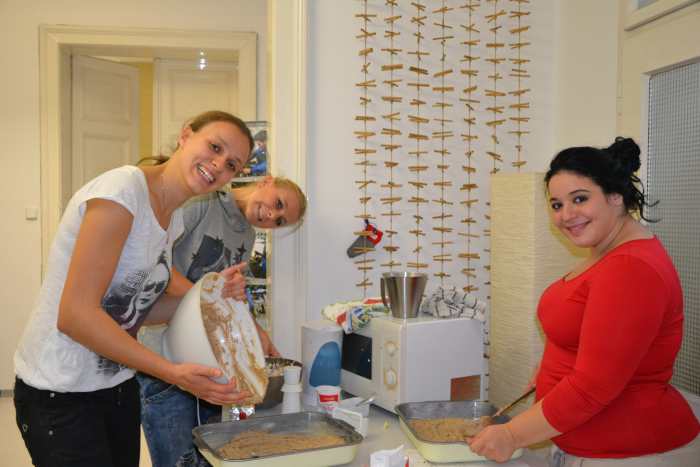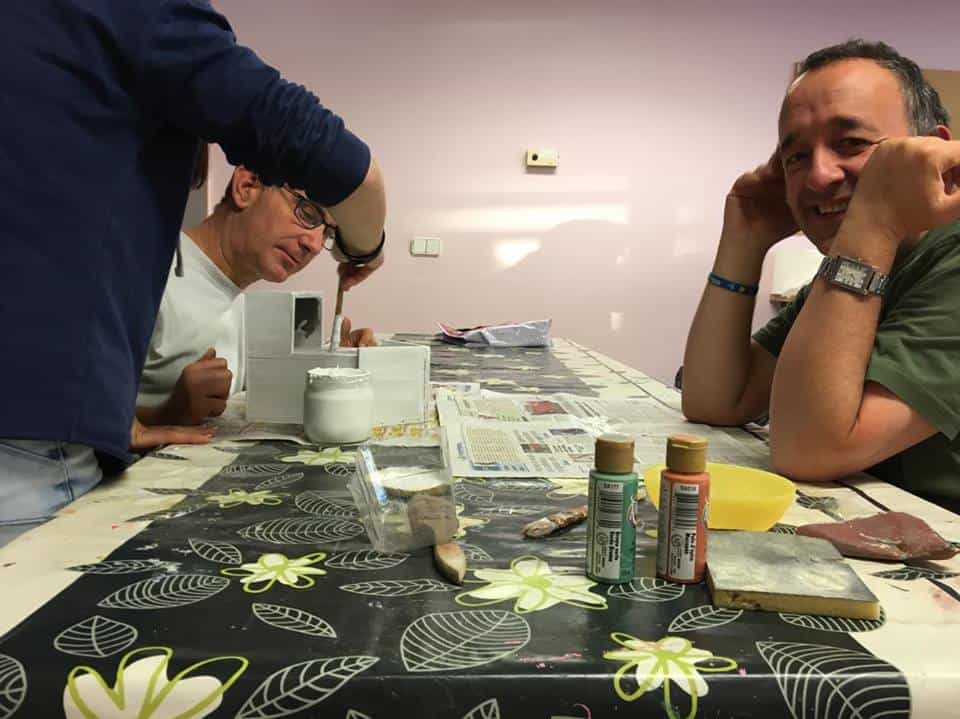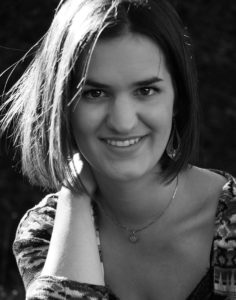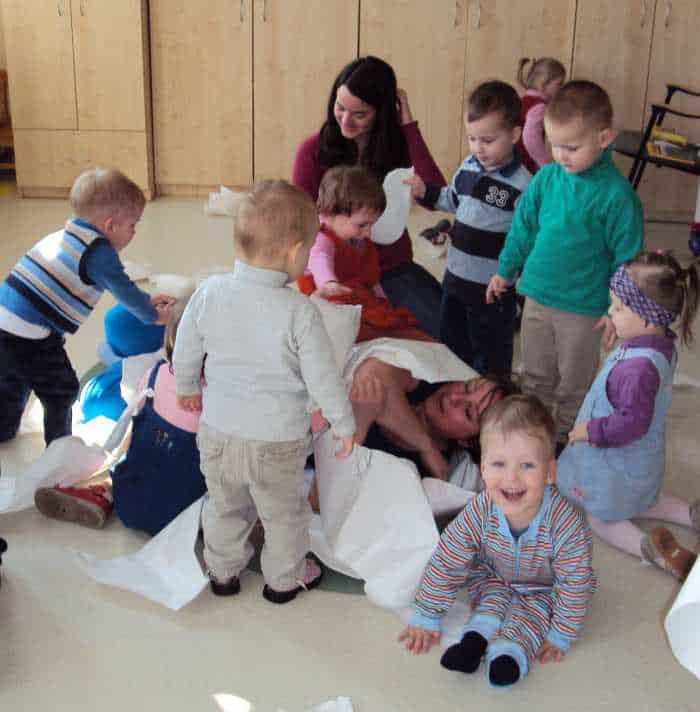„Potentiale, die in den People schlummern“
Petra Oberhollenzer from South Tyrol reports on her EVS at the EP association in Graz
My name is Petra Oberhollenzer, I am 20 years old and I come from Brixen (South Tyrol). With this report I would like to introduce you to the European Voluntary Service (EVS). It will contain many personal experiences, but just as important will be the description of the activities of the EP association in Graz, which took me on as a volunteer.
EVS is a great thing in itself. When I heard about it, I was immediately enthusiastic and convinced that EVS offers a unique opportunity to get involved in a cultural, social or ecological project in another country (usually for a period of 6 or 12 months) and at the same time lead a secure life there and get to know the foreign culture.
What opportunities does the EVS offer?
As part of the Youth in Action - Action 2 programme, EVS is organized and financed by the European Union. This means that participation is completely free of charge for the volunteer, who must be between 18 and 30 years old (with the exception of a possible contribution (maximum 10%) towards travel costs) and that their accommodation, food and insurance are covered throughout their stay abroad. In addition, the volunteer may attend a language course free of charge, is supervised by local independent tutors and meets other international volunteers working in the same country at the seminars.
This program sees its main task as promoting the mobility of people, contributing to the process of lifelong learning, establishing international contacts between committed Europeans and developing key skills that have a positive influence on social life. What is certain is that the youth of today will contribute to the construction of a new Europe.
What does my host organization, the EP association, do?
I myself applied to many different projects and finally received an acceptance from the EP association on the last day. A non-profit association in Graz whose philosophy, as the name ("EP" stands for "Entdecke Potentiale" or "Evolving Potentials") suggests, is that everyone has potential lying dormant within them, but that it usually needs to be discovered before it can be fully realized.
As the EP Association is strongly convinced that people who are able to live up to their potential are happy people, it tries to support all people in seeing, exploiting and living up to their potential. Secondary, but also very important for the EP Association is to positively influence current social problem areas through the various educational programs. In the past year, the EP association has already won over several people and won a total of two prestigious awards. In 2012, these were the "Social Impact Award" and the "Ideas against Poverty Innovation Award"!
On October 1, 2012, the association launched the second round of RELOAD, which I was able to be part of right from the start. Until mid-March, we are supporting 12 young people on their way to achieving their personal goals. Specifically, in the Reload project we support young people looking for work and try to reintegrate them into society.
„Nein“ sagen lernen
The great and special thing about my work at the EP club was definitely that I was able to experience such a varied and exciting everyday life. There was always something going on at the association and it was never boring, although sometimes you could almost have wished for that. There was always a lot to do and sometimes I didn't manage to switch off completely after an intensive day at work. One thing I definitely learned during my EVS was that I can't always please everyone, so I also had to learn to say "no" sometimes and look out for my own personal well-being. Although the importance of this learning experience is probably not obvious to everyone, it was really crucial for me. Nevertheless, I appreciated my EVS at all times - sometimes more, sometimes less - and loved facing new challenges every day.
I have learned so much about dealing with people and my positive attitude that everyone has a good core and can change for the better - however clichéd that may sound - has really been confirmed once again.
What also turned out to be a big challenge for me was that I was responsible for the lunchtime meals twice a week. The fact that there were so many different cultures, tastes and eating habits among the participants meant that cooking didn't really prove to be an easy task. Over time, however, the young people made friends with Italian cuisine and the lasagna really did turn out better every time. At our pizza and cookie baking workshops, everyone also learned or copied lots of useful tips from the others.
I was able to brush up and improve my English several times, as I often did translation work. Be it for various project applications or for our "Growing Potentials" survey. Through this survey, we wanted to gather a wide range of opinions on whether and how potential is being used today and, of course, whether there is a demand to achieve improvements.
Over time, when the young people, some of whom were the same age or even older than me, had built up the necessary respect for me, I also found myself in a position to take on some administrative tasks. I regularly checked attendance, reminded participants if they were late and collected, organized and entered many confirmations. I also had a lot of office and assistant tasks, which I had to carry out very regularly.
Project ideas, urban gardening and Fair Styria
I was also involved in the development of various projects, ideas and concepts and, as far as I was able, I was also allowed to participate in their realization. Sometimes there were also various research activities to do, including reading up on the topic of urban gardening and creating an informational text with the relevant current projects around the world. The article will hopefully soon be available in several languages on our website.
Every year, the EP association works together with the province of Styria to organize and implement the Fair Styria Action Day. In October 2012, I was also able to take part in some of the meetings and, of course, in the day, which this year focused on food sovereignty.
So in addition to the many socio-educational and social work activities, as you have seen, my area of responsibility at Verein EP includes many other tasks that make my work really varied and interesting. We even started shooting a movie recently: Everyone was allowed to actively help out, and not just as actors.
Finally, I would like to say that it has been a unique time for me so far with so many special experiences. Fortunately, my EVS is not quite over yet. I hope I have whetted the appetite of some people to either join the EP association or do voluntary service abroad.
More information
Attention. The EVS no longer exists in this form. The project is now integrated into the European Solidarity Corps and is called ESK. However, the framework conditions have remained largely the same. Our current article focuses on the change from EVS to ESC.
EVS = European Voluntary Service, means to live 3-12 months in another European country (there are also - few - places outside Europe), and to work there in an ecological, cultural or social project. Travel to and from the project, insurance, rent, food, pocket money, transportation costs to the workplace are covered by the program JUGEND IN AKTION(Youth in Action), in return you work 20-30 hours per week on a voluntary basis.
TIP: Start organizing in good time (about 8-10 months before the planned start of the project)!




